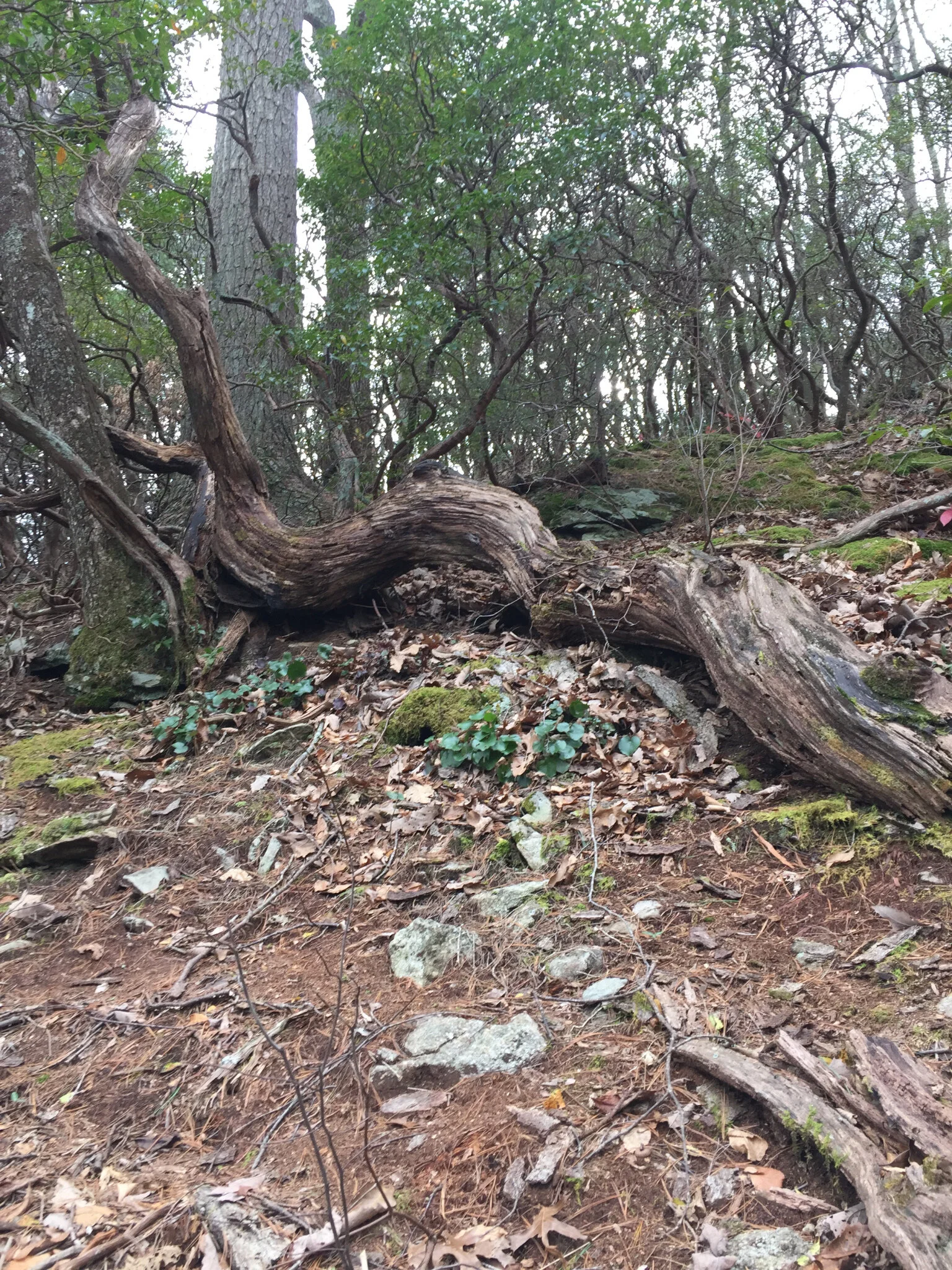I was introduced to bell hooks‘ work more than a decade ago. I immediately found myself falling into conversation with her. Her writing is frank and accessible, yet intellectually rigorous—those kinds of writers are few and far between in literary theory classes. First I became interested in her older, overtly Black Feminist work. Then I learned about her book, Where We Stand: Class Matters, and really fell in love with hooks as a writer and thinker. Not only is she from Appalachian Kentucky, but what she said about class in America really spoke to me. First, hooks immediately discussed the existence of poor White people, which is exceedingly rare in academic writing. Then she talked about the intersections of class, race, gender, and place, often sharing her own story. In recent years, undoubtedly since she returned to Kentucky and made her home on reclaimed MTR land, hooks has been writing about place [I also highly recommend her books on love]. This was the first time I had encountered hooks’ poetry.
The title of this book, Appalachian Elegy (2012, University Press of Kentucky), of course, predates Vance’s Hillbilly Elegy (2016, Harper Collins), and I think that it would be fruitful to read them in conversation with each other as both authors are from the region, but from different gender, racial, and generational social positions. hooks’ book comes from a more mature position as someone who has come full circle, embracing her roots. Her elegy does not signal a final ending, but is rather only one part of the process of renewal and rebirth.
The introduction is written in hooks’ characteristic style, and gives some background on her roots in the region. Interestingly hooks doesn’t claim an Appalachian identity, but refers to herself and her ancestors as “backwoods” people. I, too, remember coming to learn that I was an Appalachian person. My family always taught me that I was a country person, for example. I’ve embraced the term, Appalachian, but hooks refusal of it places her in solidarity with others in the region who do not have academic backgrounds. Not using “Appalachian” goes beyond identity politics debates about who counts as Appalachian—which is largely a construction of outsiders. Instead, like her choice of penname, hooks looks to her African American, backwoods ancestors for how to think about her identity.
The koan-like rhythm of hooks’ elegy tells us that even in loss there is hope and evidence of rebirth. She comes home, finding death and destruction, yet there is evidence of a cyclical process in the wildness of nature. The first poem is a call to her muses, “the long dead/ the long gone/ speak to us.” This poem sets the tone of the collection and ends with a bloom of native wildflowers and a “promise of rebirth.”
In poem 10, I can imagine hooks tending her reclaimed MTR land and finding “treasure uncovered/remnants of ancient ways/not buried deep enough/excavated they surface” in the ground, but also in her psyche. Her own memories of the past, both concrete and intuited, finding connection with “reincarnated ancestors,” those mountain people who lived in relative harmony with one another as “backwoods” folk and intermarried regardless of skin color.
hooks’ homeland, Central Appalachia, was and is not immune to racial injustice, however. In poem 15 hooks uses the “pink and white oleander,” a toxic, ornamental shrub commonly grown in southern coastal areas, as a metaphor for White supremacy in general and slavery in particular. It is the same as “rebel flags/heritage and hate.” But true to all hooks’ writing she doesn’t stop with the condemnation of White supremacist patriarchy, but says in the war on poverty “there are no sides,” only ongoing suffering. In poem 51 her “remembered confederates” are “beyond country flag nation.” She finds solidarity in people who are close to the land, who work for the common good, those “yearning for atonement.” Continuing to use nature images as a metaphor for the people of the mountains, she calls for “blackbirds/ come rest home” (poem 53). The mountains don’t belong to one people, contrary to the White, Appalachian hillbilly stereotype; rather the hills and hollows are “an enchanted place” to “claim sanctuary” for all people.
Poem 55 speaks of a sort of Everyman’s Appalachia. Here there is no “culture of poverty,” but rather people making do and being happy with what they have, even though they “live on little.” In my interviews with people of the same generation of hooks’ (roughly baby boomer), people who grew up in the mountains, these sentiments are echoed. There is a real pride of having experienced a simpler time in terms of material possessions. I have heard so many times versions of, “Looking back on it, we were poor, but we didn’t know we were poor.” hooks and her contemporaries witnessed the last days of Appalachia’s subsistence culture and nostalgia for those times runs deep.
The last poem in the collection (no. 66) at first glance doesn’t seem to hold the promise of redemption that is present in so many of the other poems, but only death by fire, of “flames/climbing hills and mountains.” But read in context, this short apocalyptic farewell forces to reader to imagine what may come next. What kind of almost heaven might we all build after the fire? It is a destruction that calls “all hearts/ to burn and break.” But fire also purifies and I’m left to imagine a smoldering world where people are forced to come together to share in a common purpose—to love and care for the land.
bell hooks is the Distinguished Professor in Residence in Appalachian Studies at the Loyal Jones Appalachian Center at Berea College.










